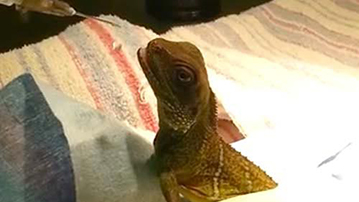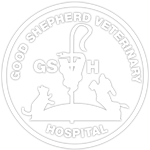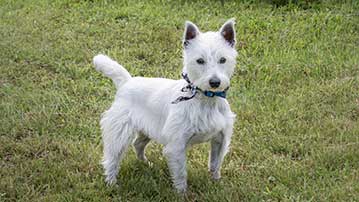
A long-awaited federal rule governing how medically important antibiotics can be used in food animals was released today, on the same day that AVMA CEO Dr. Ron DeHaven participated in a White House forum on antibiotic stewardship. The timing of the two events reflects the AVMA’s level of involvement in these federal regulatory matters, which impact both animal and human health and the daily practice of all veterinarians who treat livestock and other food-producing animals.
Veterinary Feed Directive
The long-awaited Veterinary Feed Directive (VFD) final rule, released today, mandates how medically important antibiotics given to food animals are to be used and distributed to producers. Through the VFD, producers must obtain veterinary approval prior to using feed containing medically important antibiotics. The final rule contains a provision related to the veterinarian-client-patient relationship (VCPR) that the AVMA considers to be particularly critical: the provision states that veterinarians must follow state laws related to the VCPR, provided that the state’s VCPR requirements are applicable to the VFD. Otherwise, veterinarians must meet the criteria for the federally defined VCPR to issue an order for a VFD drug.
The AVMA’s early and ongoing collaboration with the FDA helped ensure that the rule is practical and in the best interests of animal health, public health and the veterinary profession. The AVMA worked closely with state veterinary medical associations to alert states on the need for a VCPR requirement at the state level to ensure that veterinary oversight would be clearly mandated at every level.
The AVMA is reviewing the entire contents of the final rule and will be submitting official comment on it. We also will work with the FDA and stakeholder groups to develop additional resources to educate veterinarians and producers.
White House Forum
Dr. DeHaven participated in the White House Forum on Antibiotic Stewardship, held today to support the implementation of the White House’s National Action Plan for Combating Antibiotic-Resistant Bacteria (PDF). More than 150 key leaders from public and private human and animal health organizations were on hand to discuss their organizations’ commitment to the action plan with federal officials.
In addition to reiterating the AVMA’s commitment to responsible use and veterinary oversight of antimicrobials used in food animals, Dr. DeHaven shared several other commitments the AVMA plans to make to meet the federal government’s recommendations on combating antibiotic resistance, including:
- Initiating an educational outreach campaign on the responsible therapeutic use of antimicrobials in animals, including greater veterinary oversight to assist in compliance with FDA guidance and regulations
- Advocating for enhanced funding and capacity for surveillance and response in diagnostic animal health laboratories and the National Antimicrobial Resistance Monitoring System, as well as studies to assess antimicrobial resistance in food animals
- Advocating for research and programs that address infectious and zoonotic diseases, food security and safety, and environmental issues relating to human and animal well-being
- Promoting the understanding of antimicrobial resistance and the further development of alternatives to or improved uses of antimicrobials in food animals
- Supporting the development of risk assessments to evaluate effectiveness of risk-mitigation strategies
- Engaging in national and international scientific discussions on antimicrobial use and resistance
The AVMA has long recognized the potential for the development and transmission of resistance as a result of veterinary antimicrobial use. It is crucial, however, that safe and effective antimicrobials remain available for use in veterinary medicine to ensure the health and welfare of animals, in addition to the health of humans and the safety of our nation’s food supply; our advocacy efforts remain focused on this critical component.
For more information on antimicrobial use and antimicrobial resistance, visit avma.org/antibioticuse.
Article reprinted with permission from American Veterinary Medical Association





